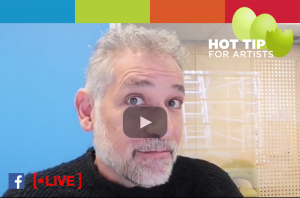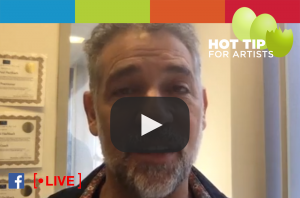Mental Health vs Mental Illness
Mental Health vs Mental Illness
What comes to mind when you came across the phrase mental health and mental illness? What do you associate with that phrase? Maybe depression. Anxiety. Stress. Bipolar. OCD?
Video Transcript
Hi. I’m Tracy Margieson, and I work in learning and organizational development at Art Centre Melbourne where I have the great privilege of managing the Arts Wellbeing Collective. I want to chat to you today about the mental health continuum. But first of all, what comes to mind for you when I say mental health? What do you associate with that phrase? Maybe depression, anxiety, bipolar, OCD. Now what comes to mind for you when I say physical health? Maybe diet, exercise, sleep.
It’s funny, when we think of mental health, we tend to immediately go to mental illness. But when we say physical health, we don’t automatically go straight to thinking about diabetes, cancer, cardiovascular disease. We think of all the things that keep us healthy. Physical health. So, what does it mean to you to be mentally healthy? It’s a funny concept that we don’t really talk about very much, although we’re certainly starting to think about it a lot more.
According to the World Health Organization, mental health is a state of well-being in which every individual realizes their own potential, can cope with the normal stresses of life, can work productively and fruitfully, and is able to make a contribution to their community. So, mental health is actually about what’s going well, and with an expectation of normal stress. It can be helpful to picture mental health on a continuum with good mental health at one end and poor mental health at the other. And like our physical health, it can vary and we can do things to make it better or things can make it worse.
So, if you think about, if you want to increase your physical health you might go to the gym, eat your fruit and veggies, and so on. And then sometimes things happen to our physical health outside of our control. We’re in an accident and we break an arm, so, our physical health declines for a period of time while this is treated. It’s similar for mental health. Everyone’s position somewhere on the mental health continuum and an individual’s position on this continuum can shift throughout their life, throughout the month, or even throughout one day. And it depends on a range of factors such as your life experience, your biology, your access to support services.
But how do you stay up in the good mental health part of the continuum? Good physical health is important. But what else keeps your mental health flourishing? When do you feel like you’re thriving? Is it when you’ve spent time with your family or your friends? Is it when you’re losing yourself in the moment of producing art? Is that when you talk to someone who’s been affected by a show that you produced. Maybe it’s when you’ve done your mindfulness practice every day for a week, or when you’ve spent time volunteering, or with your pets, or time in nature.
Whatever it is that keeps you mentally healthy, like your physical health, you work a little bit each day at improving it. So, what can you do today to improve your mental health? Look it in, work on it, so that when you next hear the phrase mental health, you’ll think of all the good stuff you’re doing to work on being mentally healthy.
I hope you found this hot tip helpful. If you’d like to find out more about Art Center Melbourne or the Arts Wellbeing Collective, visit us at artswellbeingcollective.com.au. Thank you.
Have you got our 4 Free Resources for artists?
webinar





0 Comments